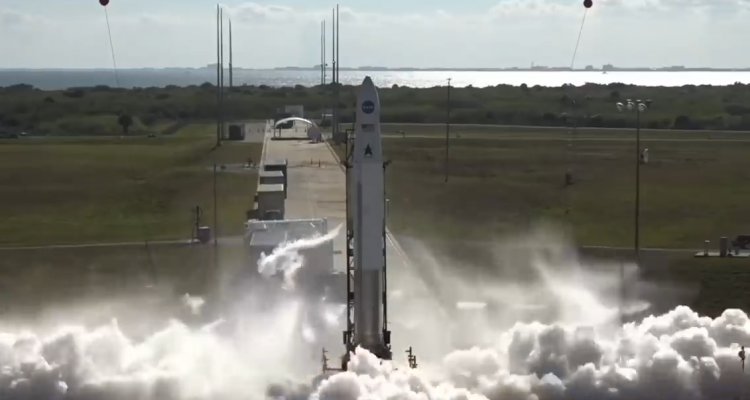Astra confirmed that there was a problem mid-flight that stopped the rocket from sending four cube satellites into orbit on a NASA-funded mission.
The ELaNa 41 mission was launched today from Florida's Cape Canaveral Space Force Station by the California startup's 43-foot-tall (13-meter) Launch Vehicle 0008 (LV0008).
Initially, the two-stage LV0008 operated well, soaring far into the Florida skies. However, something seemed to go awry about 3 minutes into the flight, soon after the rocket's first and second stages separated.
Footage from a camera onboard the second stage showed the rocket body whirling instead of sailing smoothly toward its intended destination, a 310-mile-high (500 kilometers) orbit.
"I'm deeply sorry we were not able to deliver our customer's payloads. I'm with the team looking at data, and we will provide more info as soon as we can," Astra CEO Chris Kemp said in a tweet.
With its range of mass-produced, cost-effective, and ever-evolving rockets, Astra, which was founded in 2016, hopes to capture a substantial piece of the small-satellite launch industry. Before today, the business had launched four orbital missions, all of which were test missions from Alaska's Pacific Spaceport Complex.
On two of the four missions, Astra was able to reach space. The company's LV0007 made it to orbit on the most recent experiment, a mission for the U.S. military that blasted out this past November - a big milestone for the Bay Area startup. (During a test flight in December 2020, an Astra rocket made it to space but ran out of fuel before reaching orbital velocity.)
Today's mission hoped to capitalize on that achievement by transitioning Astra from testing to operational flight. LV0008, a component of Astra's Rocket 3 launch vehicle family, carried four tiny satellites that flew as part of NASA's Educational Launch of Nanosatellites (ELaNa) initiative. If the launch had been successful, the little spacecraft would have performed a variety of tasks in the last frontier.
Astra will launch an investigation of what happened today in collaboration with the U.S. Federal Aviation Administration.
Depending on the results of the investigation, the company may be able to resume operations soon. For example, Astra was awarded NASA's TROPICS (Time-Resolved Observations of Precipitation Structure and Storm Intensity with a Constellation of Smallsats) project, which will use six cubesats to research storm development and evolution.
Astra intends to launch the six satellites in three missions this year, all of which will take off from the South Pacific's Kwajalein Atoll.






